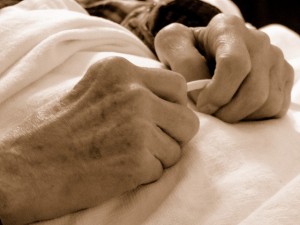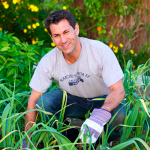Psychological Death
Often, we are enlightened and amazed with the discoveries of modern medicine. In fact it seems that within every decade another five or so years are added to the average life expectancy. However, this part of life expectancy refers to the physical, not the mental. In other words, people stay alive longer and live longer whether or not their minds like it or not and often times, the body out lives the mind and it can get very complicated.
If you are reading this column and you are middle aged, you likely have either lost a parent or they are in the geriatric stage of life where everything is slowing down from both the physical to the mental. This is when the adult children must come to terms with the mortality of their parents and often switch position and take care of their parents in some more indirect or direct manner.
 But, what happens when aged parents leave us psychologically before physically? This becomes an emotional hurdle for most healthy adults because it makes one have to deal with something I call “active loss”. Active loss is about having to say goodbye before “really” saying goodbye. It’s about having to observe a change directly, have no control over it, and come to terms with the fact that this person that you have known for years is dying before your eyes. They may still be able to walk, talk, communicate, and even spend time with you, but they have changed. They are not the same person you have known for the majority of your life. To make matters worse, if they are aware of their demise, they may not like their changes either and have little they can do to modify it.
But, what happens when aged parents leave us psychologically before physically? This becomes an emotional hurdle for most healthy adults because it makes one have to deal with something I call “active loss”. Active loss is about having to say goodbye before “really” saying goodbye. It’s about having to observe a change directly, have no control over it, and come to terms with the fact that this person that you have known for years is dying before your eyes. They may still be able to walk, talk, communicate, and even spend time with you, but they have changed. They are not the same person you have known for the majority of your life. To make matters worse, if they are aware of their demise, they may not like their changes either and have little they can do to modify it.
I am not just referring to conditions such as Dementia or some other form of neurologicalorganic disease. I am referring to normal mental or neurological atrophy. In other words, the body and mind both age, slow down, and die. It’s a natural process. We can do many things to extend this process ( more at this time in the field of general medicine than Psychiatry ), but nevertheless, when most people consider dying, the reference is usually physical, not psychological. In fact, death is pronounced when the body dies, not the mind.
We see the forerunners of mental death all the time in middle age such as memory changes. Short term memory goes before long term memory. As time passes the brain changes and memory is then not as easily retrievable as it used to be. If people live long enough then this just takes more of a complete loss of the process and long term memory starts to then erase as well. We have medications now to slow down the process, but it’s just a matter of time.
So, what can we do to get ready for Psychological Death? First, get prepared. If you have an elderly person in your life, be prepared for them leaving you mentally before physically if their physical health is adequate. Second, as upset as you might feel, that elderly person is sad and frustrated that they are drifting away and can’t stop it, so be empathic and try to help them focus on whatever they can. Third, you must be patient with them. Expect to repeat a lot and speak loudly all of the time even in public when you are with them. It’s like having a toddler in public. People your age will get it. Finally, DON’T remind them of the old days. They can’t remember them and this will make them sad, so stay present and focused on the now. The mourning process of psychological death is similar to that of physical death in terms of the various emotions experienced (depression, anger, bargaining, denial, and acceptance). What makes accepting psychological death, I think, more difficult than physical death is that the person you are mourning the loss of is still alive but in a different form of life. Accepting that is very difficult for anyone.
______________________________________________________________
Dr. Keith Kanner is a Licensed and Board Certified Clinical Child, Adolescent, and Adult Psychologist and Psychoanalyst. In addition to a full-time private practice in Rancho Santa Fe, California, he is an Assistant Clinical Professor of Psychiatry in the School of Medicine at the University of California San Diego where he teaches both human development and also trains medical students how to better understand and relate to their patients. He also serves as the Director of Clinical Counseling for La Jolla Country Day School in La Jolla, California, and is a Clinical Professor at The San Diego Psychoanalytic Society and Institute. Dr. Kanner also sits on the National Board of Directors for Kids Korps USA, which is the largest organization in the country that teaches children and adolescents the importance of volunteering to help the community at large. As a father of three children, he is also a dedicated baseball, football, and soccer coach.










You must be logged in to post a comment Login